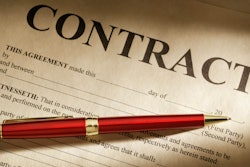
Many trade contractors do not understand how general contractors (GC) choose who they award trade work to. Understanding their practices and using that knowledge effectively will lead to far more, and better priced, work for your business.
You may be under the impression that once a price is submitted to the GC's estimator your job is done, but you'd be mistaken.
Think of your proposal during the bid process as the ante. It gets you in the game. It doesn't close the deal. It's really not even your final price.
Once the GC is notified their company was chosen (typically by being the low bidder) the file of subcontractor and supplier proposals is turned over to the assigned project manager (PM). The PM's first task on a project is to "buy it out."
Buying out the project means the PM has to work through all the proposals and negotiate with the subs to eliminate scope duplications and holes. The duplications are caused by contractors who perform multiple trades and offer package pricing. The holes are created by exclusions written into the subcontractor proposals. The PM must eliminate both.
The PM will take lowest proposal for each trade, note the exclusions and note the holes. He will start calling the low bidders and strive to talk them into holding their price while removing their exclusions. Many subs will not pull their exclusions without an offsetting price increase.
Furthermore, the PM will contact the companies that have overlapping proposed scopes and negotiate the overlap out of the proposal. He will request a price decrease while doing so.
To simplify the message, during buy-out the PM is negotiating price with almost every sub he or she talks to.
Most GCs will reduce the cost of their subcontracted work by around 1 percent of the contract during buy-out. That 1 percent can represent 20 percent of its revenue on the job.
Imagine the headache this chore must be for the PM. The project is already on the clock. The PM has a couple of dozen trades to work through negotiating with 30 to 40 subs. Even after finalizing the subs for the project he may lose one or more during contract signing.
Why follow-up with the GC is necessary
This is your opportunity to work the system if you know how and are diligent in your follow-up. If you play your cards right you will close more, good work than you would sitting around waiting for the phone to ring.
For example, just because you didn't submit a price to the winning GC prior to the bid doesn't mean you can't after the work has been awarded to him. If the GC has a good reputation or is one you were successful working with in the past, why wouldn't you submit a proposal?
We're aware that what we are saying may strike you as unpleasant if not down right unethical. It isn't.
It is how the game is played. It is where price shopping originates from. Nine times out of 10 the reason your price is being shared with a competitor is because the competitor put in exclusions that you didn't.
Yes, there are GCs who will repeatedly use your price to drive down the price of their pet contractor. They can only do that so long before you will find out about it and stop providing a price. Their reputation will get out on the street, and they will find themselves struggling to find decent reliable subs to work with. Don't get yourself tied up in an emotional knot over a GC that shops price. Just avoid them.
Here's what you should be doing on each bid. The afternoon of the award, call the GC you have the best relationship with. Find out which GC won the contract. Thank him for the information, hang up the phone and immediately call the estimator at the winning GC.
Congratulate him on his successful bid. Tell him you want to work the project. Ask him which PM the job is being assigned to. Ask the estimator whether he would be willing to include your proposal in the estimating file he turns over to the PM if they are one of the GCs you didn't submit a proposal to initially.
Regardless of whether the estimator agrees to your offer or not, call the PM. Congratulate him on the win. Let him know you'd like to work with him on the project. Tell him you're interested in helping him buy out your trade with as little pain as possible. Make sure he has your cell number.
Ask him to call you and let you know where you stand on the initial proposal once he sees the bids. Ask him when he expects to start working on your trade's pricing. Call him back on that day to see if he has any questions about your proposal. Convince him that you will expedite all paperwork including the contract and submittal drawings should he award you the work. Prove to him that your crews work fast, clean and safe. Ask him where you need to be to get the work awarded right now.
You may well be surprised by how much more work you close with GCs by following this simple process. The PM's job is a paperwork nightmare. Most will help the easiest sub to work with get the work if that sub puts just a touch of effort in during buy-out.
From the outside the buy-out process looks like a dirty little activity. It isn't. It is a very time consuming, frustrating part of the PM's life. If you refuse to play the buy-out game you might as well quit pursuing GC work. We promise you that one or more of your competitors is playing the game already.
Of course, if you have the option to work directly for end users, we always believe that is the best business model to adopt and master. Less headaches, better margins and greater control over your sales revenue.
*This article was originally published in 2013 and republished in 2020.




















